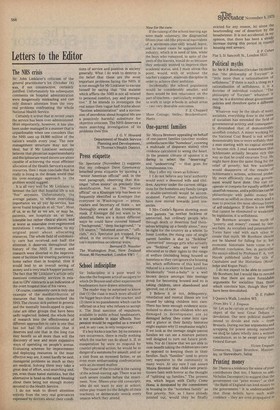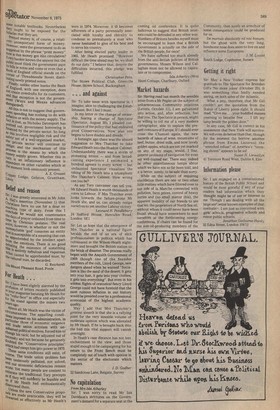Printing money
Sir: There is a tendency for some of your contributors (but not, I hasten to add, Nicholas Davenport) to suggest that the government can "print money" or that "the Bank of England can lend money to the government." It is understandable that these beliefs have such wide credence they are even propagated in Spectator November 8, 1975 some notable textbooks. Nevertheless they ought to be exposed for the fallacies that they are. Printed money is, of course, a relatively unimportant form of money. However, were the government to do as suggested by the phrase "print money" how is this money got into circulation? Every banker knows the answer but the Public must think the government pays its bills in notes and coins or even that a Bank of England official stands on the corner of Threadneedle Street distributing newly printed notes. Finally, unlike other banks the Bank of England, with one exception, does not create overdrafts for its customers, and that exception is not the government (Ways and Means advances disregarded). All this is not to suggest that governruent spending has nothing to do with inflation or with the money supply. The fact is that, as Nicholas Davenport has Pointed out, government borrowing is financed by the private sector. So long as this involves negligible risk and the safety net of a well
the -organised market,
Private sector will continue to Oblige; and the mechanism of this Process is the means by which the ,IncateY supply grows. Whether this in `urn is an inflationary influence is dePendent on other variables which at the moment look ominously present.
Lincs.

































 Previous page
Previous page